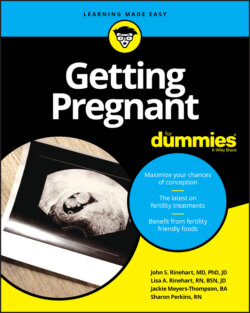Читать книгу Getting Pregnant For Dummies - Sharon Perkins - Страница 126
Dealing with disbelief: But it worked before …
ОглавлениеPerhaps one of the most confusing physiological and psychological dilemmas occurs when something worked before and suddenly, apparently without reason, ceases to be effective.
Those struggling with secondary infertility commonly lament:
“We conceived the first month we tried.”
“All my husband had to do was look at me and we got pregnant with our first two.”
“Conceiving a child was never a problem with us.”
Sometimes secondary infertility seems to defy proper or satisfying explanations; other than being a year or two older than you were the last time you had a baby, nothing seems to have changed. Other times, getting to baby number one may have been a challenge, and the fact that it’s not going to be easier the second time around is disappointing, but not unexpected.
Begin with a careful review of your first successful go-round. Ask yourself the following:
Was it as easy as it seemed the first time or is that merely in comparison to the current struggle of secondary infertility?
Did you miscarry two or more times on the way to a healthy baby? Were these miscarriages investigated and found to be due to chromosomal abnormalities, which increase with age?
Was it ever suggested, prior to conception, that there might be issues that could cause a problem in conceiving or carrying a child (for example, abnormal hormonal levels; structural issues in the uterus, ovaries, or fallopian tubes; a family history of infertility; and so on)?
It’s not uncommon to disregard a previous observation, even if it was made by a medical professional, particularly if their diagnosis proved to be wrong, and the proof — the child — is now pulling all the pots and pans out of your cabinet and trying to flush them down the toilet. It’s even more common to ignore a family member’s recollection of history (for example, every woman on your mother’s side went into menopause at the age of 35) if you seem to be the exception.
Conduct your own investigation if you feel that you may have overlooked a comment or a speculation the first time around. Ask your partner if you can’t remember correctly or check with the physician whose care you were under prior to the conception of your first child. You may also see this as an opportunity to open or reopen discussion with family members to get an accurate picture of your genetic history when it comes to reproduction. You may well end up finding out that you do indeed have a clean bill of health, but you may also uncover information that can help you get to the bottom of secondary infertility.
